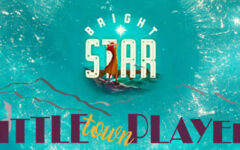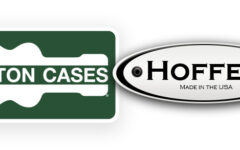 In the first case I’m aware of involving a bluegrass artist, mandolinist David Grisman has filed suit against online video sharing website, YouTube. From large media conglomerates such as Viacom to soccer leagues, many have filed similar suits since Google’s recent acquisition of YouTube.
In the first case I’m aware of involving a bluegrass artist, mandolinist David Grisman has filed suit against online video sharing website, YouTube. From large media conglomerates such as Viacom to soccer leagues, many have filed similar suits since Google’s recent acquisition of YouTube.
Grisman’s lawsuit seeks an unspecified amount of cash for copyright infringement, as well as a court order forcing YouTube to comply with copyright laws in the future. Grisman and company seek to pursue the case not only for themselves, but also for other independent musicians and publishers.
YouTube’s response to such cases has historically been that they always comply with requests to remove unauthorized material when asked to do so by the copyright owners, and are therefore protected under the Digital Millennium Copyright Act.
The suit was filed May 10, 2007 in a San Francisco federal court.
Some have pointed out the irony of someone who has always encouraged fans to bootleg his live performances now suing a video sharing site, but Grisman draws a distinction between fan bootlegs and “Google distribution.” Personally I don’t see much difference myself, since the fan bootlegs invariably end up online where they are distributed worldwide in the same way that YouTube clips are. But ultimately, as a copyright owner, it’s his right to decide when and where to allow use of his copyrighted works. But, you might ask, was a lawsuit really necessary?
Here’s part of the text from the suit.
they [Google and YouTube] deliberately refuse to take meaningful steps to deter the rampant infringing activity readily apparent on YouTube which would, in turn, have a negative impact on the advertising and other reviews and other value achieved through the large volume of traffic on the YouTube Web site.
Essentially the difference, as Grisman and company seem to be drawing it, is that YouTube, and by extension Google, is making money on the site where fans trading bootlegs aren’t. At least that’s the thought process, and I can go along with that. If he’s willing to give away, so to speak, his copyright by allowing fans to tape, that is different from someone seeking to monazite his copyrights without his consent.
I understand how he can be ok with live show taping, but not ok with YouTube video sharing. Other copyright owners might be ok with it though (I know some who are). So why try to take that choice away by forcing YouTube into a business model that wouldn’t allow it? Why not just ask YouTube to remove your works and, assuming they do, leave it at that?







